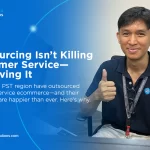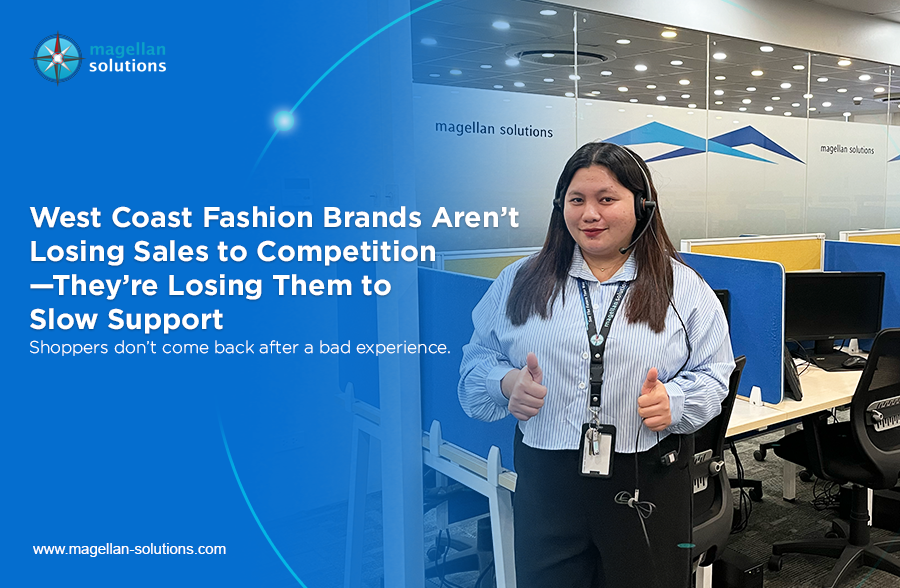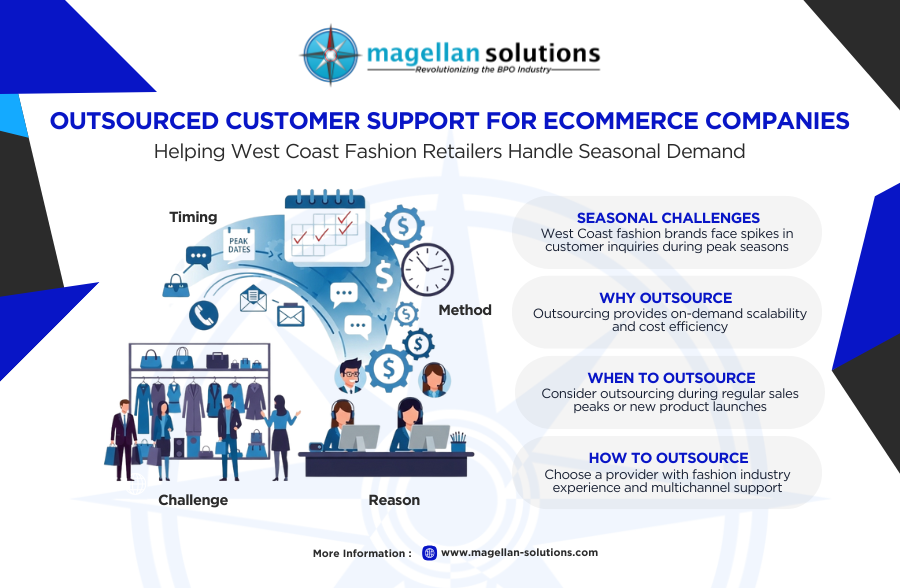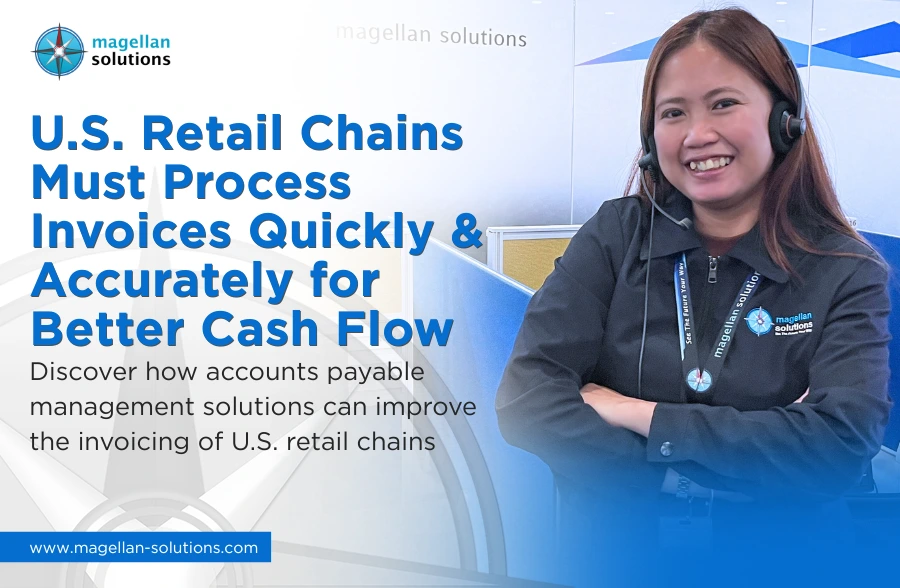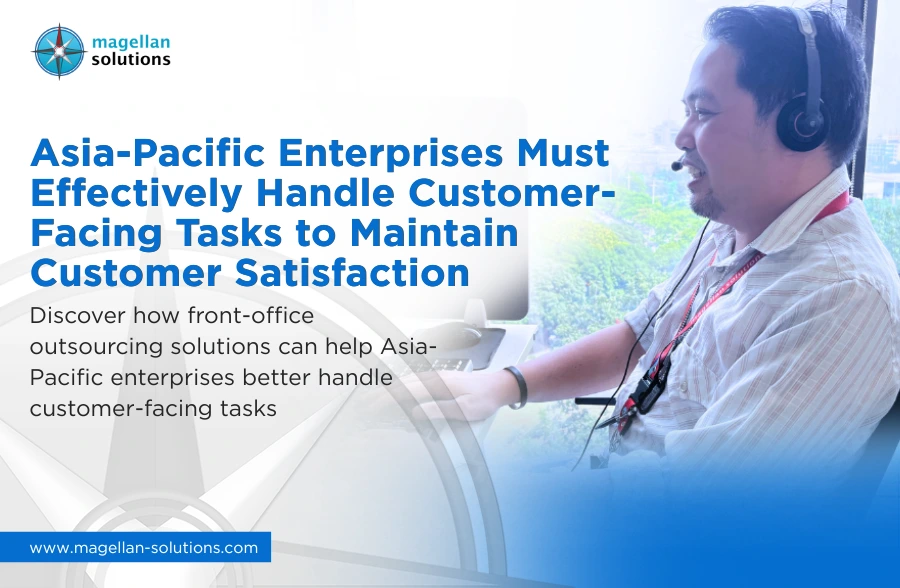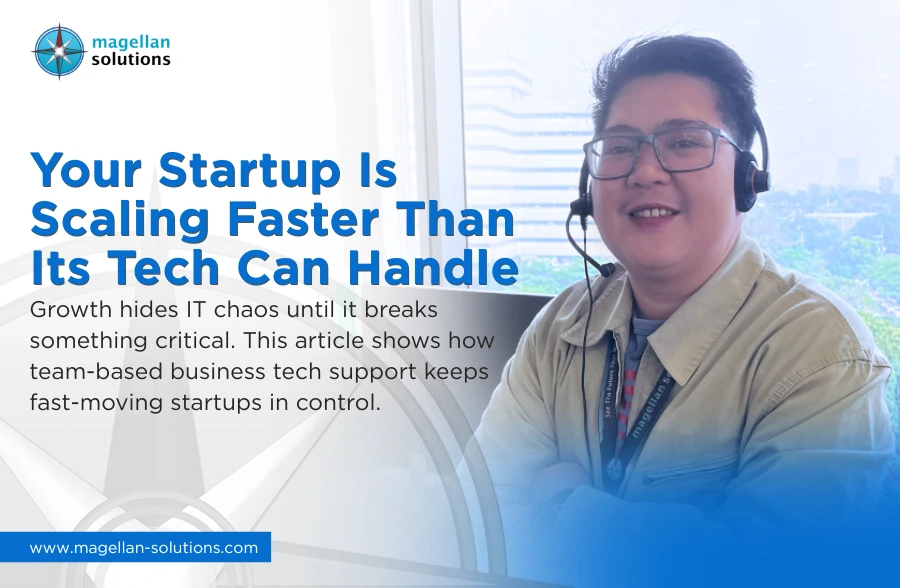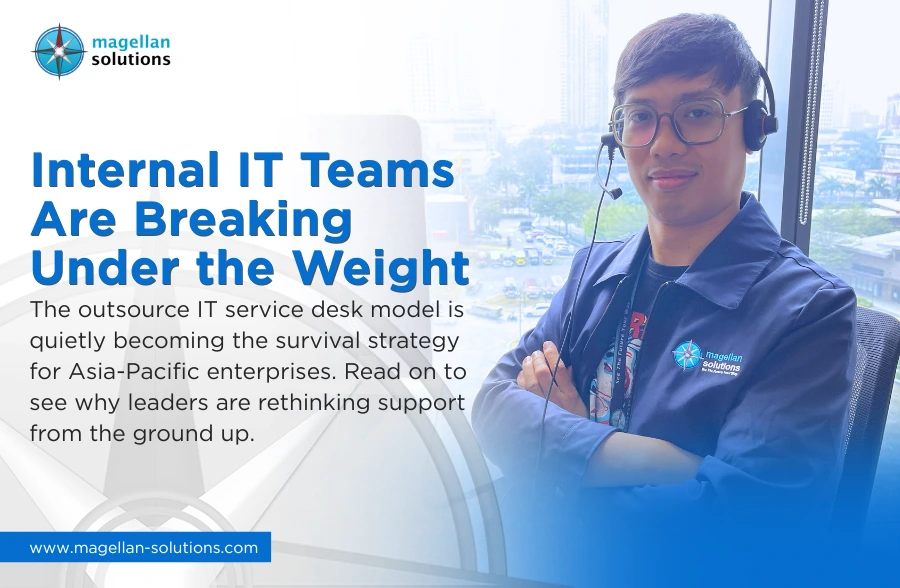Schedule a FREE call with our outsourcing expert now and get a precise quotation that meets your requirements. Don't wait - get started today!
Outsource customer support for ecommerce companies — when seasonal demand hits, West Coast fashion brands know the drill—website traffic spikes, inventory moves fast, and customer inquiries pour in nonstop. What often gets overlooked, though, is how quickly ecommerce customer support can become overwhelmed when interest surges. It’s not that retailers aren’t prepared; it’s that fashion cycles move fast, and customer expectations move even faster.
A growing number of online apparel brands—from indie boutiques in Los Angeles to lifestyle retailers in Seattle—have found a way to stay ahead without constantly scrambling for seasonal staff: they choose to outsource customer support for ecommerce companies. It’s not a shortcut or a cost-cutting trick; it’s a strategic move that lets them stay flexible without letting quality slip.
The Seasonal Reality of Fashion Ecommerce on the West Coast
The West Coast has a different kind of rhythm when it comes to fashion buying behavior. People shop earlier for festivals and events, they pounce on limited drops, and returns tend to stack up after every seasonal rush. Brands see noticeable spikes during:
- Holiday sales and gift-buying periods
- Back-to-school shopping
- Spring and summer launches
- Festival and travel seasons
- Limited drops and collaborations
The pressure builds fast. A typical in-house support team might be able to manage day-to-day inquiries, but when the inbox doubles—or triples—everything slows down. Customers don’t stick around when it takes two days to get an update on shipping or a response about sizing. Most don’t even bother waiting; they go to another brand that answers faster.
That’s usually when outsourcing stops being a “backup plan” and starts sounding like a smart operational decision.
Why Fashion Brands Now Outsource Customer Support for Ecommerce Companies
The biggest reason brands turn to outsourcing isn’t about cost—it’s about elasticity. Seasonal customer service isn’t predictable in neat numbers, and internal hiring isn’t always realistic. Outsourcing offers something most in-house setups can’t do overnight: scale up and down without chaos.
Here’s what fashion retailers say makes the difference:
- The Flexibility They Can’t Get In-House
Instead of rushing to hire temporary agents, training them, and then downsizing a month later, brands tap into outsourced teams that can expand or contract as needed. No long-term commitments, no frantic staffing.
- Fewer Overhead Headaches
Wages, equipment, training, management—those add up quickly, especially in states like California and Washington. Outsourcing lets brands redirect that spend into marketing, production, or logistics instead.
- Real Omnichannel Coverage
Customers don’t limit themselves to email. They call, DM, live chat, or send messages through marketplace platforms. Outsourced teams are built to handle all of it without missing a beat.
- Extended or 24/7 Availability
A late-night shopper in Oregon might be waiting on details before adding to cart. Someone in Hawaii might want to message at unusual hours. International orders don’t follow Pacific Time. Outsourced support covers that gap.
- Better Customer Retention During Crunch Times
Faster responses mean fewer abandoned carts, smoother returns, and less frustration. Brands that outsource typically notice higher repeat purchases and better customer sentiment after peak seasons.
When It Becomes Clear That Outsourcing Is the Next Step
Some retailers bring in outside help only during their busiest months; others make it part of their year-round strategy. Either way, the signs usually look familiar:
- Tickets start stacking past business hours
- Social media messages go unanswered for days
- Shoppers bounce mid-purchase because no one replies to pre-sale questions
- Returns double and the team can’t sort through the follow-up
- Hiring seasonal staff becomes too expensive or too slow
- International volume increases beyond internal coverage
Even brands with solid in-house teams use outsourcing as a cushion so they’re not stretched thin during product launches or end-of-season sales.
The Metrics That Usually Shift Once Brands Outsource
Retailers who outsource customer support for ecommerce companies often see improvements in the areas that matter most:
- Response time drops because more agents are available to jump on new inquiries
- Customer satisfaction goes up thanks to faster, friendlier interactions
- Return and refund communication runs smoother, leading to fewer disputes
- Resolution time shortens, which keeps shoppers calm instead of irritated
- Conversions increase when sizing, shipping, or product questions are answered in real time
- Retention rises, especially among first-time seasonal buyers
Even small tweaks in these numbers make a real difference when volume is high.
What Outsourcing Actually Covers in Ecommerce Fashion Support
Customer support isn’t just one thing, especially in fashion. The right outsourcing team usually jumps into several areas at once:
Orders, Shipping, and Delivery Questions
Customers want to know when their package is arriving and what to expect with carriers during busy seasons. Outsourced agents can track, update, and follow through without delays.
Exchanges and Returns
Apparel has some of the highest return rates in ecommerce. Having a dedicated team to walk customers through the process saves brands from backlogs.
Product Questions and Fit Concerns
From fabric details to size charts, customers often need direct confirmation before placing an order. Quick answers keep carts from being abandoned.
Live Chat and Instant Messaging
When chat is active but slow, customers assume no one is listening. Outsourced support keeps those channels responsive during peak times.
Social Media DMs
Fashion shoppers love to message through Instagram or Facebook instead of email. Having trained agents handle these inquiries ensures consistency and brand tone.
Upselling Without Being Pushy
A good outsourced rep knows when to suggest alternate sizes, similar styles, or complementary pieces—without sounding like a script.
What to Look For in a Support Partner
Handing off customer service doesn’t mean stepping away from your brand voice. West Coast fashion labels usually want partners who feel like an extension of their internal team—just without the hiring and payroll burden.
The most effective outsourcing partners tend to offer:
- Direct retail and fashion experience
- Multichannel customer support
- Ability to scale quickly for seasonal swings
- Custom scripting aligned with brand tone
- Security and compliance with data handling
- Performance tracking and reporting
- 24/7 or partial coverage based on demand
It’s not about offloading work—it’s about expanding capacity without losing brand identity.
How Brands Make Outsourcing Blend Seamlessly
When outsourcing is done well, customers don’t know (or care) who’s on the other side of the message. That requires alignment, not handoff.
Fashion retailers typically:
- Share FAQs, brand guidelines, and tone specifics
- Provide product knowledge or upcoming release info
- Connect support teams to platforms like Zendesk, Gorgias, or Shopify
- Establish SLAs for response time and ticket handling
- Set feedback loops and reporting checkpoints
This allows outsourced agents to work naturally as part of the customer-facing team during high volume.
Real-World Peaks That Benefit Most
Seasonal outsourcing isn’t hypothetical—it’s a tried-and-tested survival strategy:
- Holiday drops push customer inquiries through the roof
- Clearance season triggers a wave of return and exchange requests
- Festival and summer wear releases lead to sizing and preorder questions
- Collabs and capsule launches draw sudden attention
- Back-to-school and outdoor season boost cart activity
- Warehouse or shipping delays bring extra tracking inquiries
Without extra support, brands fall behind within days. With outsourced coverage, the rush feels manageable instead of chaotic.
Why Magellan Solutions Fits the Role
The fashion market on the West Coast has its own tempo, and not every outsourcing provider keeps up. What brands want isn’t the cheapest vendor—they want consistency, fluency in ecommerce processes, and the ability to scale up without losing quality.
Magellan Solutions has built its support model around that exact need. They don’t force a one-size-fits-all setup. Instead, they adapt to seasonal surges, brand voice, and platform preferences. Whether a retailer needs after-hours coverage, full seasonal support, or omnichannel handling, their teams are trained to plug in smoothly and stay sharp.
If your in-house team is already feeling the strain—or you’re bracing for the next seasonal spike—there’s zero advantage in waiting.
Thinking about whether it’s time to outsource customer support for ecommerce companies?
Magellan Solutions can help you handle the demand without sacrificing your customer experience.
Visit Magellan-Solutions.com to explore how to get started or request a consultation.


